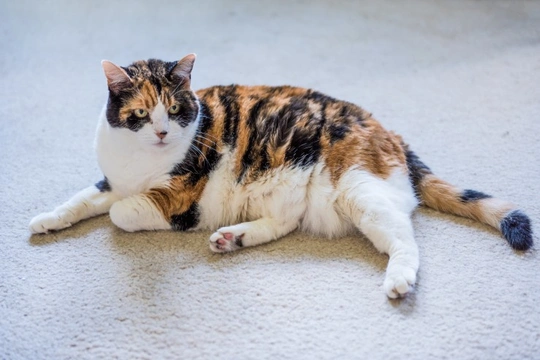
Can Female Cats Scent Mark by Spraying? Understanding Causes & Solutions
Everyone knows that intact (unneutered) male cats are prone to scent marking by spraying urine onto vertical surfaces, a behaviour well known for its strong, pungent smell that can be difficult to neutralise. Neutering male cats is often very effective in reducing or eliminating this behaviour. But what about female cats? Can female cats also scent mark by urine spraying, and if so, why might they do this?
The answer is yes—female cats can and do spray urine as a method of scent marking. While spraying is far more common among intact tomcats, all cats, male or female, neutered or intact, have the ability to spray urine. However, the underlying reasons for spraying in female cats, especially neutered ones, often differ from those of male cats. Understanding these reasons is key to managing and resolving the behaviour.
What is Scent Marking and How Does it Differ from Normal Urination?
Scent marking is a communication behaviour that involves depositing a small, concentrated amount of urine on vertical surfaces, unlike normal urination, which involves a squatting posture to empty the bladder. Normal urination is generally a private act aimed at waste elimination and often involves covering up the scent.
Scent marking, in contrast, is designed to be noticed and smelled. It delivers a more concentrated, hormonally charged urine spray that sends messages to other cats or animals in the area. For intact tomcats, this behaviour serves to attract mates and warn rival males off their territory. Intact female cats in heat may spray to signal their reproductive status as well.
In neutered cats, spraying is usually linked to territorial marking or learned habits from before neutering. For neutered females, which rarely spray for reproductive reasons, the causes are often linked to stress, insecurity, or environmental changes.
How to Identify Spraying in Female Cats
Spraying is typically performed with the cat standing with a stiff or twitching tail, backing up against a vertical surface and squirting urine backwards. This posture is quite distinct from the squatting position used in normal urination. If you catch your cat in this posture depositing urine on a vertical surface, you can be confident it is spraying.
If your cat is urinating in hidden or unusual places horizontally, this may suggest a medical problem or other behavioural issues, so a veterinary assessment is advised to rule out infections, urinary tract issues, or other health concerns.
Common Reasons Female Cats Spray Urine
1. Heat Cycle and Reproductive Signalling
Unneutered female cats may spray to advertise their availability during their ovulation cycle. This natural behaviour serves to attract mates.
2. Territorial Marking and Environmental Change
For neutered females, spraying often signals a response to feeling insecure in their environment. New household members, another pet, changes in furniture or routine can trigger the behaviour. If your cat is new to you, this may fade as she settles in.
3. Stress and Anxiety
Spraying can be a way for a female cat to cope with stressful circumstances, such as conflicts with other cats in the home or neighbourhood, perceived threats, or feeling neglected. In some cases, cats may even spray on items belonging to their favourite person, like clothing, as a way to reclaim scent-based connection.
What to Do if Your Female Cat is Scent Marking by Spraying
Addressing female cat spraying involves understanding and tackling the root causes. Here are some practical steps:
- Vet Check-Up: First, rule out any medical causes with a thorough veterinary examination.
- Reduce Stressors: Identify and minimise changes in your cat's environment. Provide safe spaces and maintain routines.
- Manage Multi-Pet Situations: If you have multiple cats or pets, create separate territories and manage gradual introductions. Use cat flaps that restrict access if needed.
- Enhance Interaction: Spend quality time with your cat to ensure she feels secure and loved. Some cats, such as the Siamese, especially thrive on attention.
- Avoid Punishment: Never shout at or scare your cat for spraying. This may increase anxiety and worsen the behaviour.
- Use Appropriate Cleaning Products: Clean sprayed areas promptly with enzymatic or neutralising cleaners rather than scented products, as the latter may encourage further marking.
- Consider Synthetic Pheromones: Products like Feliway diffusers or sprays can help calm your cat and create a sense of security but should be used alongside behavioural strategies.
Conclusion
Female cats can scent mark by spraying urine, though this is less common than in males and often has different causes. Whether linked to reproductive cycles, territorial instincts, or stress, understanding the behaviour and addressing the underlying reasons compassionately and methodically offers the best chance of resolving spraying. Always consider veterinary advice to rule out health problems, and focus on creating a safe, stable, and loving environment for your cat.



